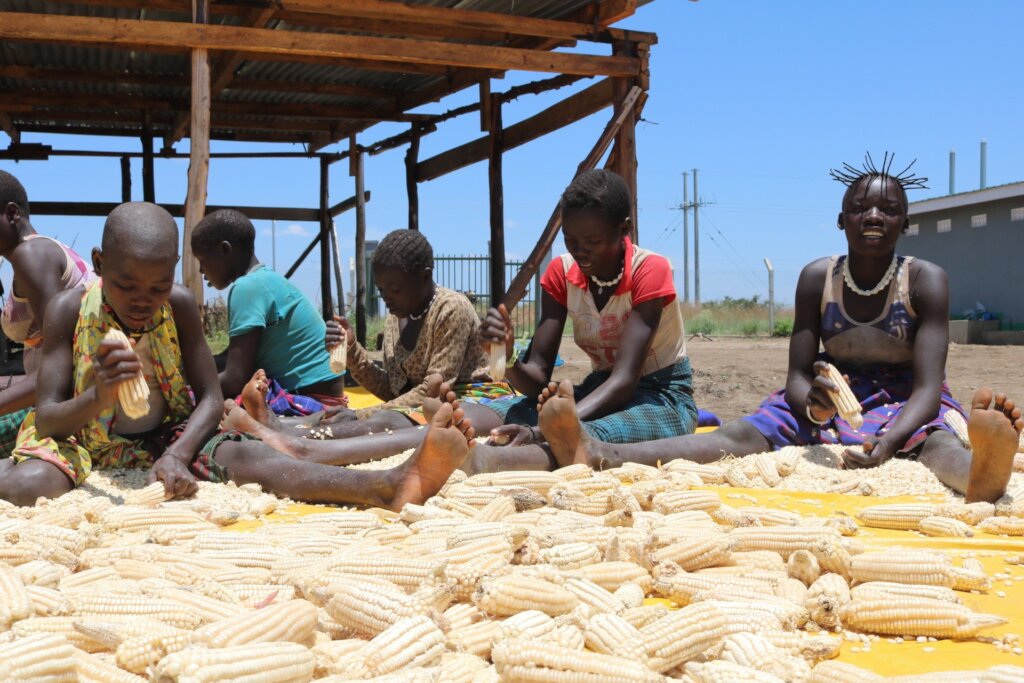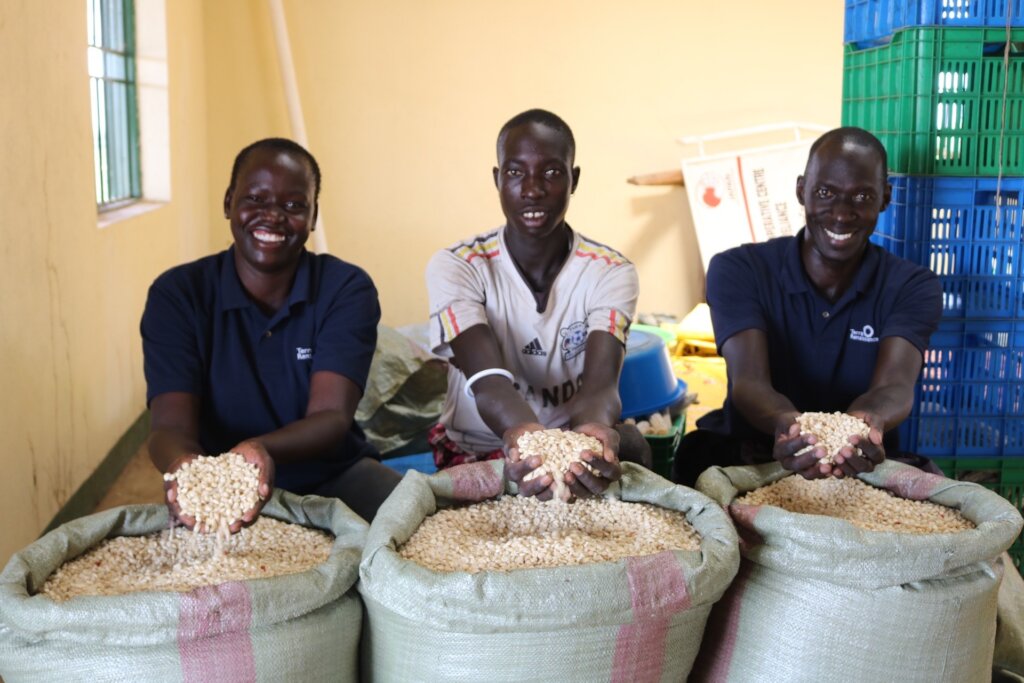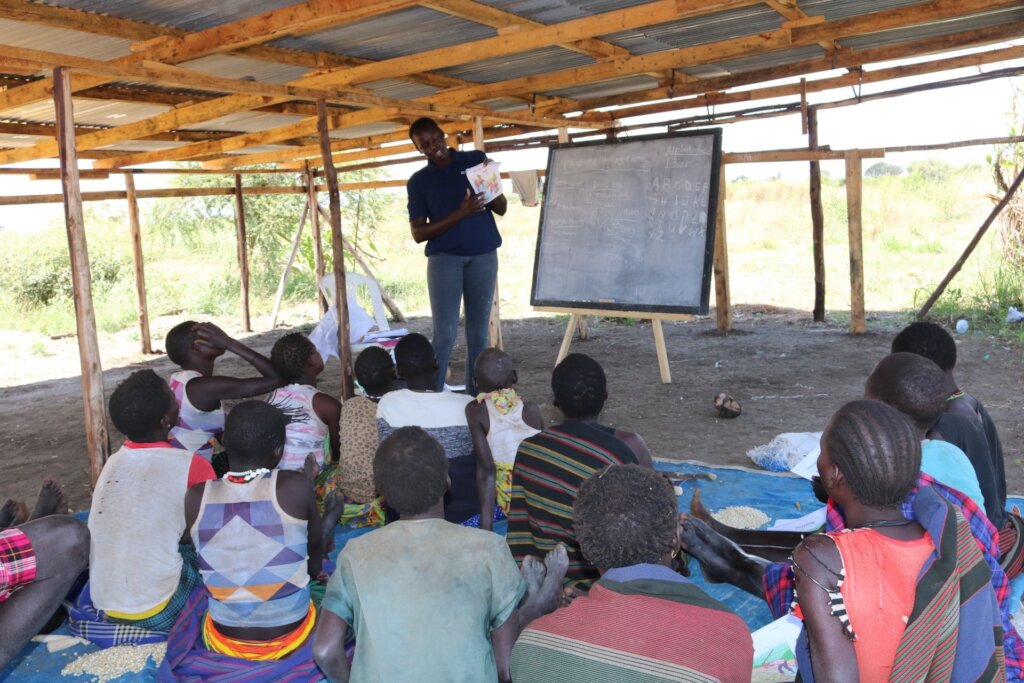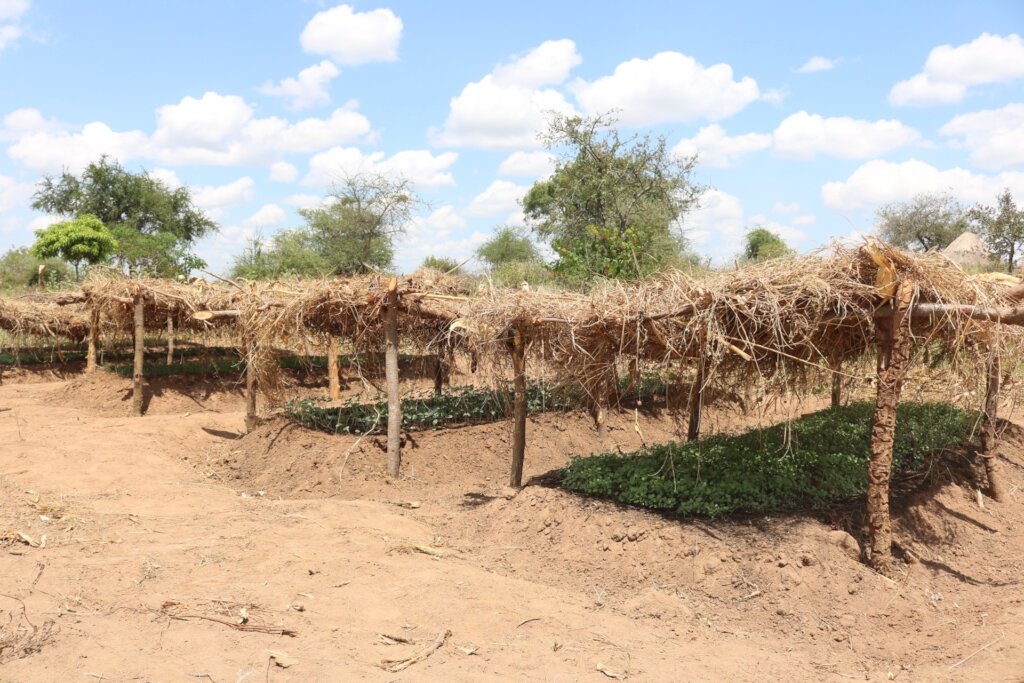By Misa Ito | Member of Advocacy Team
Continuing from last year, we continue to bring you an update on our initiative to promote self-reliance through irrigated agriculture in the Karamoja region of northeastern Uganda. This time, we focus on the corn harvest and the growing ripple effect of our project within local villages.
Harvesting Corn and Ensuring Seed Security
This season, we successfully harvested corn that was planted at the start of the rainy season in April. Our communal farm serves a crucial purpose: producing grain seeds to ensure local farmers have access to planting materials.
Many residents in the region have land but lack the financial means to buy seeds. Market-sold hybrid seeds are costly and can only be used for a single season, making them impractical for low-income farmers. To address this, our project focuses on introducing native corn seeds that can be replanted year after year, ensuring food security and long-term self-sufficiency.
Scaling Up Seed Production
One of our community farming groups achieved remarkable results—harvesting over 430 kg of new seeds from just 10 kg of planted seeds! This surplus allows us to distribute affordable native seeds not only to group members but also to others in the community, making self-sufficiency more accessible.
Alongside the harvest, we provided hands-on training in post-harvest management to ensure proper seed storage until the next planting season. Participants eagerly learned techniques such as kernel removal and pest prevention, equipping them with essential skills to maintain their crops effectively.
Spreading Knowledge: From Beneficiaries to the Wider Community
During a recent visit to a local village, we came across an impressively maintained vegetable nursery. Upon inquiry, we learned that it belonged to one of our project participants, who had applied the skills gained from our training to cultivate vegetables in their own community.
Even more inspiring, the knowledge didn’t stop with just one individual. Other villagers had joined in, forming a group to practice vegetable farming together. This organic spread of agricultural skills is exactly what we aspire to achieve—extending the benefits of the project beyond its direct participants and fostering self-sufficiency at the community level.
It was truly rewarding to see project beneficiaries confidently answering technical questions posed by our agricultural experts. Their growing expertise is a testament to the project’s success in empowering communities with sustainable farming skills.
Links:
Project reports on GlobalGiving are posted directly to globalgiving.org by Project Leaders as they are completed, generally every 3-4 months. To protect the integrity of these documents, GlobalGiving does not alter them; therefore you may find some language or formatting issues.
If you donate to this project or have donated to this project, you can receive an email when this project posts a report. You can also subscribe for reports without donating.
Support this important cause by creating a personalized fundraising page.
Start a Fundraiser


